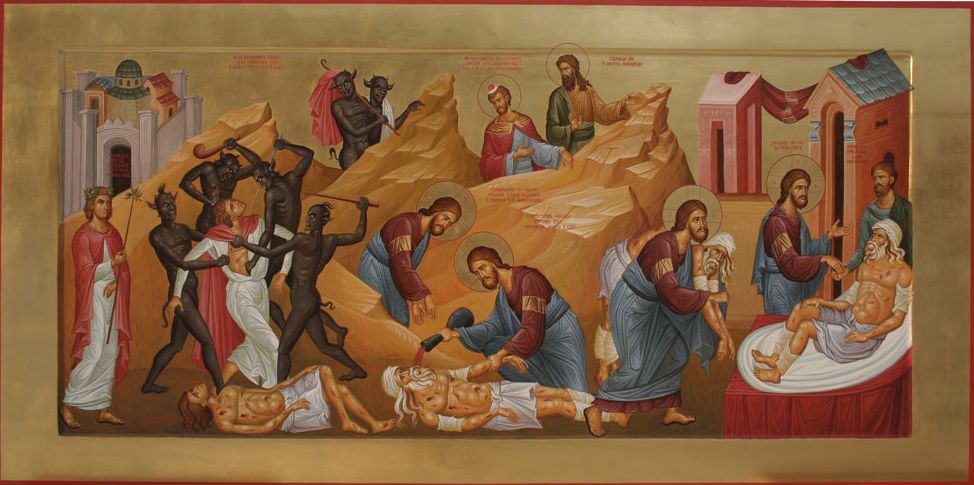
This Lent, I have been using C.S. Lewis’ book Mere Christianity as a way of self-examination. Why C.S. Lewis? Why not an Orthodox classic, such as the The Philokalia of the Niptic Fathers or another one such as The Ladder of Divine Ascent? Well, for two reasons. One, in many ways, both texts are addressed more to cenobites and monastics than they are addressed to those living in the world. This means that reading those texts takes discernment, time, and energy. Second, I wanted to return to basics. And, I must with regret admit that we Orthodox do like our philosophical complexities, sometimes to the point of forgetting simple clear explanations.
C.S. Lewis broadcast his series of talks that became Mere Christianity during World War II. He needed to address troops in the field, citizens having their homes bombed out from under them, a world at war in which competing religious philosophies were at war. To counter the Aryan myth of the Nazis, the return to Germanic/Nordic myths, C.S. Lewis had the job of explaining the faith at a time when much of English Christianity had fallen into a complexity of explanations that were difficult for the average Englishman to follow. Most English people were not in the least bit interested in philosophy, so he had to take philosophy and make it understandable, make it make sense to a war-ravaged England.
And, yes, make no mistake about it. If you listen to Mere Christianity (and I recommend listening to it, not reading it) and you have had any philosophical training, you will recognize that his first broadcasts were all about presenting a sound philosophical basis for Christianity and deconstructing competing secular and religious philosophies and arguments. It is only after he gives you a sound philosophical basis for Christianity that he then proceeds to enlighten you more about basic Christian doctrine.
But it is not only his simplicity of explanation that pulled me to him, but also that he is known as one of the Western writers whose writings are close, and amenable, to Eastern Orthodox teaching. More than one paper has been written on the Eastern Orthodoxy of C.S. Lewis. At the same time, the fact that he is Western helps me to remember that the West has several theological points to which the East needs to often listen. The biggest tragedy of the separation of the East and the West in the Great Schism was not simply the tragedy of a divided Church, but the loss of the balances that each side of Christianity brought to the other side. If the West needs to let itself be corrected by the East in various of its doctrines, it is also true that the East has forgotten that some of our own Father have—more than once—sounded like some of the Western Fathers with whom we have issues. In Mere Christianity a couple of points about the Father, his sovereignty, and our need, are well made that the East is sometimes weak on.
But, at bottom, it is his understanding of God’s relationship to us that has made me glad that I have worked on that series of talks again. His constant reminder that God loves us and that we are called to love underlies much of his writings. His confession of his estate prior to accepting the Lord is an immeasurable help. And his explanation of the steadfastness of the Lord to a world at war is unsurpassable.
Should you wish to listen to C.S. Lewis, I highly recommend C.S. Lewis at War published by Focus on the Family. Alongside a recording of the talks, there is a companion set of CDs that give a dramatized version of the events that led to Mr. Lewis being asked to make those now famous radio broadcasts.



Our OCF is doing a book study on Mere Christianity right now.
Our OCF is doing a book study on Mere Christianity right now.